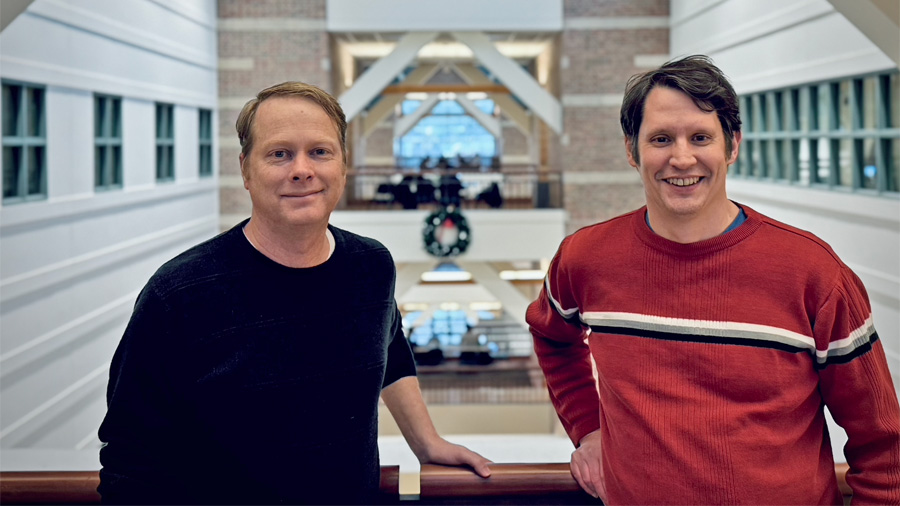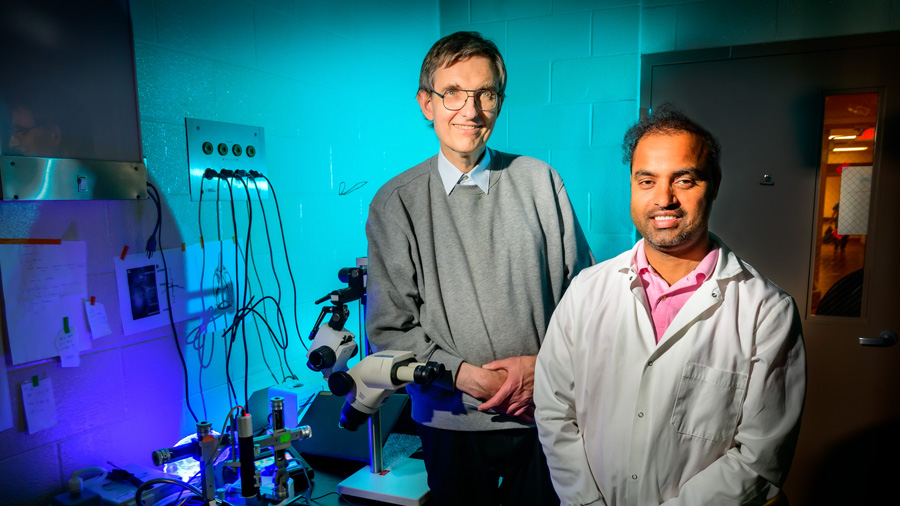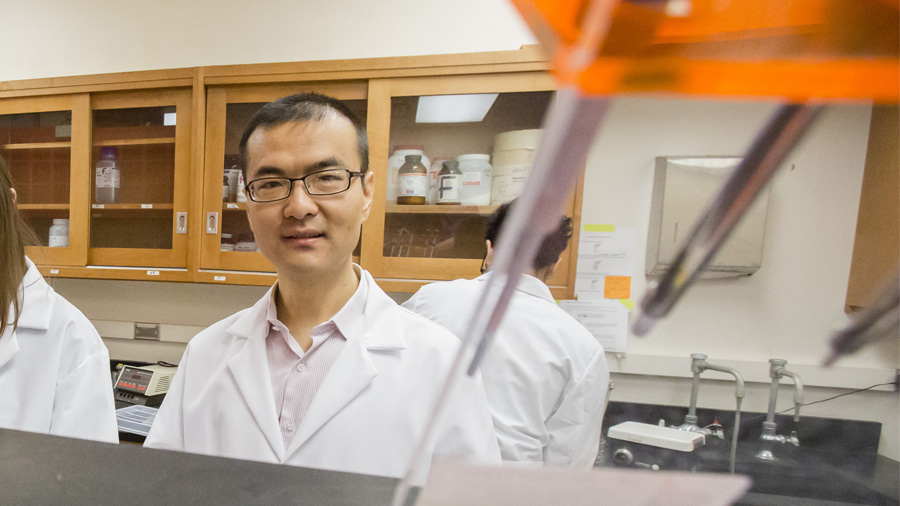Gee Lau joined the Vet Med faculty in 2006. His lab has been continuously funded for more than 20 years, including by the National Institutes of Health, the Department of Defense, the Cystic Fibrosis Foundation, and the American Lung Association. At the College of Veterinary Medicine, he has been honored with the Kruger Research Excellence Award, the Zoetis Research Excellence Award, and the Dr. Erwin Small Teaching Excellence Award.
Using about 60 words, how would you explain your main area of research focus to someone sitting next to you on an airplane?
Each year, bacterial pneumonias kill 2 million individuals globally. My lab examines bacterial pathogenesis in chronic and acute lung diseases. Specifically, we look at mechanisms by which Pseudomonas aeruginosa induces excessive mucus that blocks airflow in chronic lung diseases and how Streptococcus pneumoniae breaches the alveolar-capillary barrier that leads to sepsis during acute pneumonia. We are also active in non-antibiotic antibacterial discovery, including modulating host responses to enhance bacterial clearance. My lab also collaborates on novel antibacterial discovery efforts.
How will your work impact quality of life and benefit society both locally and globally?
Our ultimate goals are to develop effective antibiotic and non-antibiotic approaches to manage bacterial infectious diseases and improve patient outcomes. Additionally, we hope our work will better inform the public about antibiotic stewardship.
What excites you most about the future of research in your field?
Microbiomes are essential for health. There has been a strong effort to develop narrow-spectrum, pathogen-specific novel antimicrobials that would not disrupt microbiomes. Various new technologies—among others, bioinformatic tools, genome mining and editing—are deployed for antimicrobial and vaccine discovery.
A recent discovery by Dr. Paul Hergenrother, U. of I. Department of Chemistry, is very exciting and has paved way for the development of multiple promising antibiotics currently in clinical trials. He identified fundamental principles and rules governing how antibiotics enter and accumulate in bacteria.
I am also encouraged by increased public awareness of antibiotic stewardship to ensure these precious drugs are prescribed only when necessary and appropriate.
What tools are critical to the work you do?
Our research projects employ a combination of bacterial genetics, bacterial and host transcriptomics and proteomics, in silico modeling, bioinformatics, mouse models, human and mouse cell lines, flow cytometry, cell biology, microscopy, and live imaging to gain insights into the pathogenesis of bacterial pneumonia.
How has the broader U. of I. research community factored into your success?
U. of I. offers excellent supporting research infrastructures that have contributed to our many projects. We heavily use support services provided by various core facilities, including animal facilities, DNA service lab, metabolomics, proteomics, Cytometry and Microscopy to Omics, and bioinformatic cores at Roy J. Carver Biotechnology Center, and Beckman Institute imaging core.
We have collaborated with other research groups on campus, including Drs. Paul Hergenrother (Chemistry); Qing Cao and Hua Wang (Material Sciences and Engineering); Weiping Zhang, Som Nanjappa, Tauqeer Alam, Chris Gaulke, Di Wu, and Csaba Varga (Pathobiology); Miranda Vieson (Veterinary Diagnostic Laboratory); and Ryan Fries and Annette McCoy (Veterinary Clinical Medicine). We have an upcoming collaboration with Dr. Emad Tajkhorshid (Biochemistry).
Also, we benefit enormously just through daily interactions with colleagues at the College of Veterinary Medicine and on campus.
We also have active ongoing collaborations with research groups at Massachusetts General Hospital/Harvard Medical School, University of Nevada, Cleveland Clinic, Temple University School of Medicine, National Jewish Hospital at the University of Colorado, University of North Carolina School of Medicine, Hebrew University at Jerusalem (Israel), Weizmann Institute of Science (Israel), and Aix-Marseille University (France).
If your work depends on collaborations with people in other fields of study, what are those fields?
Our work is multidisciplinary and relies on colleagues who provide expertise in protein biochemistry, chemistry, material sciences, protein biology, advanced microscopy and imaging, and in silico modeling.
Similarly, we provide multiple preclinical rodent and cell culture models of infectious diseases for colleagues at the U. of I. and worldwide who focus on developing novel antibiotics and alternative antibacterials before these compounds progress toward clinical trials in humans.
More about Gee Lau
Gee Lau
Professor
Department of Pathobiology
Education
- MS, University of Wisconsin-Madison (Bacteriology)
- PhD, Purdue University, West Lafayette, Indiana (Molecular Biology)
- Postdoctoral Fellow, Imperial College School of Medicine, London (Bacterial pathogenesis)
- Postdoctoral Fellow, Massachusetts General Hospital, Harvard Medical School, Boston (Bacterial pathogenesis)
Academic Positions
- Research assistant professor, Division of Pulmonary, Critical Care and Sleep Medicine, University of Cincinnati College of Medicine, Cincinnati, Ohio




